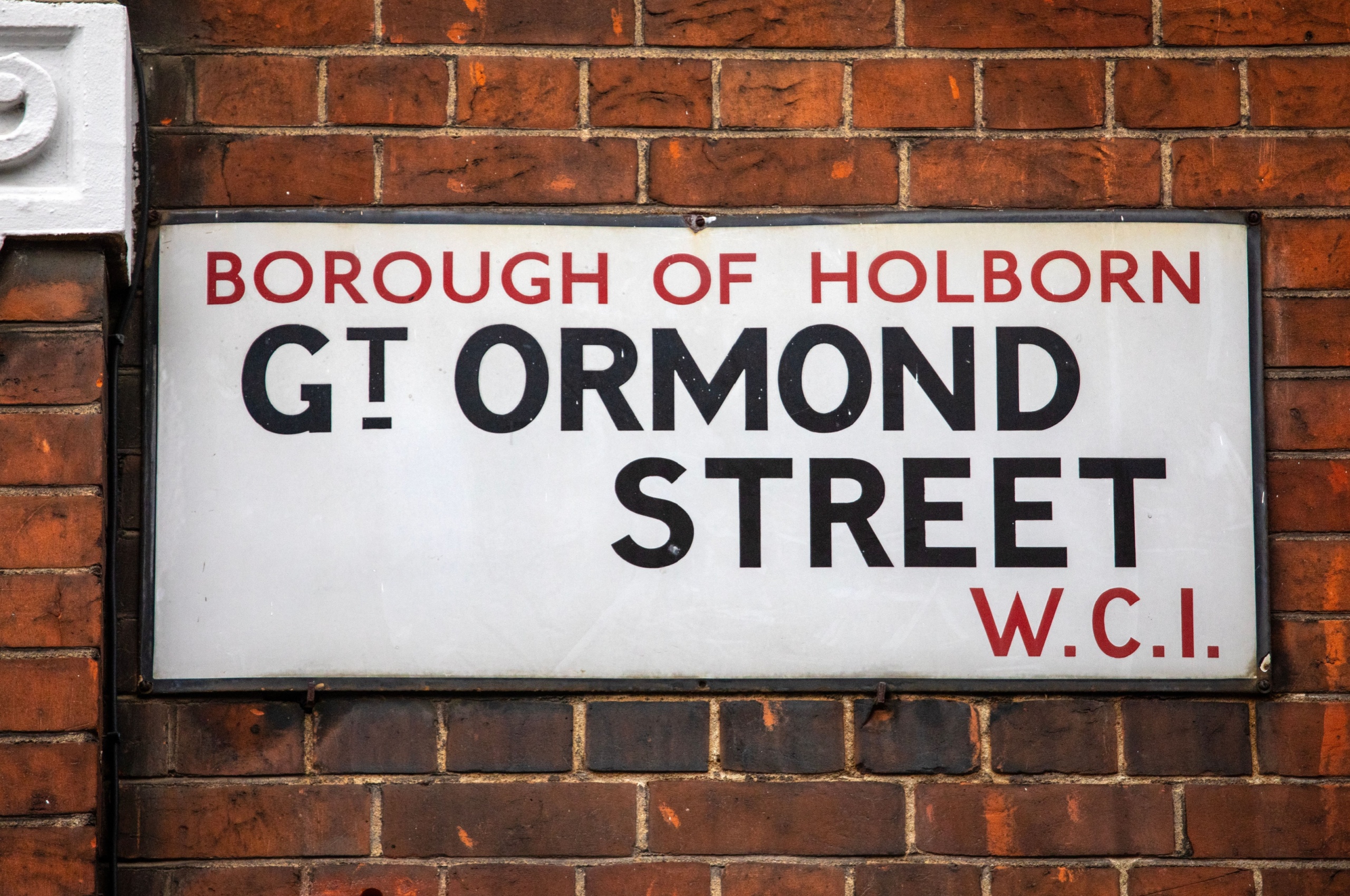In 1902, Scottish author James Matthew Barrie (better known as J. M. Barrie) published a novel for adults called The Little White Bird. In it, a baby named Peter Pan learns to fly and travels to Kensington Gardens.
Two years later, on 27 December 1904, the first stage version of Peter Pan was performed at the Duke of York theatre in London, becoming an almost instantaneous success. From there, Barrie would go on to expand the story into a novel titled Peter and Wendy, first published in 1911. It has never been out of print since.
The extraordinary popularity of Peter Pan is well-known. You have no doubt seen or read a version of the tale in your lifetime.
What you might not know is that Barrie used the success of his story to even greater effect than just being a key part of the culture. In fact, just as he did for Wendy and her siblings in 1904, Peter Pan continues to provide value for children to this day.
Find out how, and what it can teach you about the value of leaving charitable gifts in your will.
Barrie donated the copyright of Peter Pan to Great Ormond Street Hospital
In 1929, Great Ormond Street Hospital in London approached Barrie and asked whether he would be willing to sit on a committee to help buy land for the hospital.
Although Barrie declined the invitation, he did something even more surprising – two months later, he donated all his rights to Peter Pan to the hospital.
The hospital immediately started receiving royalties every time the play was staged, as well as from books and products related to the story.
Most copyrights come to an end at some point when characters and tales fall into the public domain. But, in 1988, the House of Lords agreed to a special clause in the Copyright Designs and Patents Act that gives Great Ormond Street the right to royalties from Peter Pan in perpetuity.
Thanks to the popularity of the character he created, J. M. Barrie might have had a lasting legacy anyway. But even so, he still used his wealth to support a good cause, and Great Ormond Street continues to benefit to this day.
Leaving charitable gifts in your will can allow you to support causes that matter to you
Much like Barrie, you can also use your wealth to create a lasting legacy – by making charitable donations in your will.
There are no doubt charities and causes that are close to your heart. Perhaps there is an organisation that specifically helped you or a loved one? Or one that simply works in an area that means a lot to you, like Great Ormond Street did to J. M. Barrie?
Whatever the reason, you could leave behind some of your wealth in your will to support that cause and its impact on your community.
You can decide to leave a fixed amount to one of these causes. Alternatively, you could leave a specific item or state that you’d like the organisation to receive whatever’s left once other gifts have been distributed to your chosen beneficiaries.
You can also leave stipulations for how this wealth is to be used.
For example, as the BBC reported in 2022, Canadian investment banker, Keith Owen, left more than £2 million to a voluntary countryside conservation cause in Sidmouth, Devon.
As part of the endowment, Owen stated that he wished the money to be used to “support local projects, which made use of voluntary labour, and in particular to sustain the ambience and way of life, recognised in Sidmouth and its surroundings”.
The organisation planted 153,000 daffodil bulbs, providing a beautiful yellow glow to Sidmouth each spring – and a fantastic legacy for Keith Owen.
If you wish the cause to use your wealth in a specific way, it’s worth discussing it with them first. Otherwise, if you just leave details in your will and the organisation can’t meet your conditions, they may not be able to accept the donation.
You could reduce the rate of Inheritance Tax due on your estate
As well as leaving a lasting legacy by gifting your wealth, you may also potentially be able to mitigate an Inheritance Tax (IHT) bill on your estate.
Provided that you leave your gift to a qualifying organisation, such as a UK-registered charity, community amateur sports club, or political party, then there are two ways you could save on IHT.
Firstly, gifts made to such causes are entirely free from IHT, so leaving money to charity in your will reduces the size of your taxable estate. In turn, this could reduce the size of the bill that your loved ones face on your death, as IHT is only due on the value of your estate that exceeds certain thresholds.
Furthermore, when you leave at least 10% of your taxable estate to a charitable cause, the rate of IHT your beneficiaries could face on your death falls from 40% to 36%.
So, rather than leaving your wealth to your loved ones and them facing a significant tax bill, you could donate to a cause that’s meaningful to you while simultaneously reducing the IHT due on the remainder of your wealth.
Get in touch
Want to find out more about organising your wealth for the future? We can help at Cordiner Wealth.
Email hello@cordinerwealth.co.uk or call 0113 262 1242 to speak to an experienced adviser today.
Please note
This article is for general information only and does not constitute advice. The information is aimed at retail clients only.
Please do not act based on anything you might read in this article. All contents are based on our understanding of HMRC legislation, which is subject to change.
The Financial Conduct Authority does not regulate estate planning, tax planning, or will writing.






